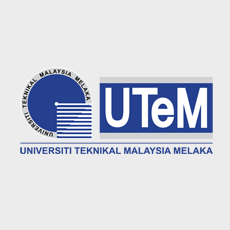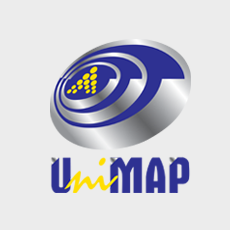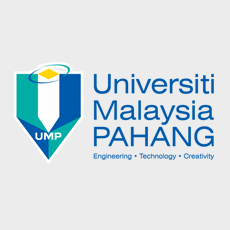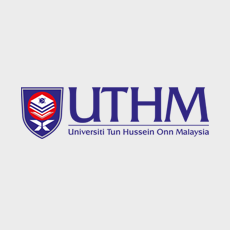About Us
The Birth of the Malaysian Technical University Network (MTUN)
The following paragraphs explained briefly the history behind the formation of MTUN (previously known as Technical Univercity Colleges. MTUN is actually a network of four (then) university colleges where all of them which have undergone change of names to be UniMAP (in Perlis), UTHM (in Johore), UTeM (in Melaka), and UMP (in Pahang). These were formerly known as KUKUM, KuiTTHO, KUTKM, and KUKTEM, respectively).
Around August, 2004, UniMAP had invited the four Deputy Rectors (Academic & Internationalisation) and several senior deans (then) of the technical university colleges (TUCs) to discuss common academic issues. This led to the formation of the 'TUC Academic Management Council', with UniMAP as its secretariat. Since then, a series of meetings has followed suit, and several common stands have been agreed upon. Among the agreed upon common stand is the list of characteristics that MTUN graduates must possess. UniMAP has adapted this list of characteristics, which is delineated later in this book.
In March 2006, the 'TUCN Malaysia' (Technical University College Network of Malaysia) – an outgrowth of the TUC Academic Management Council – was officially formed after the signing of a memorandum of understanding by the Rectors of the four TUCs in Perlis. TUCN Malaysia is the 'umbrella' upon which several cross-TUC committees are placed.
Later then the name changed to MTUN. Changes made as part of the government's attempt to correct the perception of the public who had in mind that public 'university colleges' are not of the same standing as public 'full fledged universities', when in fact, they actually are.
The following paragraphs explained briefly the history behind the formation of MTUN (previously known as Technical Univercity Colleges. MTUN is actually a network of four (then) university colleges where all of them which have undergone change of names to be UniMAP (in Perlis), UTHM (in Johore), UTeM (in Melaka), and UMP (in Pahang). These were formerly known as KUKUM, KuiTTHO, KUTKM, and KUKTEM, respectively).
Around August, 2004, UniMAP had invited the four Deputy Rectors (Academic & Internationalisation) and several senior deans (then) of the technical university colleges (TUCs) to discuss common academic issues. This led to the formation of the 'TUC Academic Management Council', with UniMAP as its secretariat. Since then, a series of meetings has followed suit, and several common stands have been agreed upon. Among the agreed upon common stand is the list of characteristics that MTUN graduates must possess. UniMAP has adapted this list of characteristics, which is delineated later in this book.
In March 2006, the 'TUCN Malaysia' (Technical University College Network of Malaysia) – an outgrowth of the TUC Academic Management Council – was officially formed after the signing of a memorandum of understanding by the Rectors of the four TUCs in Perlis. TUCN Malaysia is the 'umbrella' upon which several cross-TUC committees are placed.
Later then the name changed to MTUN. Changes made as part of the government's attempt to correct the perception of the public who had in mind that public 'university colleges' are not of the same standing as public 'full fledged universities', when in fact, they actually are.
The model of education system practiced at the TUCs is not identical to one another, albeit being highly similar. The general commonalities of the four TUCs are:
• Focusing on specific engineering disciplines only;
• Having a relatively small student population (typically not more than 10 000 students at any one time);
• Students spending more time in practical sessions than in lecture rooms;
• Relevant experiments are carried out as close as possible to the time the material is presented during lecture;
• Apart from classroom lecturers, students are also aided by 'Teaching Engineers' who are stationed at locations where practicum is performed;
• Close links and enhanced collaboration with the industry
• Practical sessions comprise of experiments in laboratories, teaching factories, computer-aided individual learning, industrial training in the industry, and final year projects
• An emphasis on entrepreneurship and communication skills
• Focusing on specific engineering disciplines only;
• Having a relatively small student population (typically not more than 10 000 students at any one time);
• Students spending more time in practical sessions than in lecture rooms;
• Relevant experiments are carried out as close as possible to the time the material is presented during lecture;
• Apart from classroom lecturers, students are also aided by 'Teaching Engineers' who are stationed at locations where practicum is performed;
• Close links and enhanced collaboration with the industry
• Practical sessions comprise of experiments in laboratories, teaching factories, computer-aided individual learning, industrial training in the industry, and final year projects
• An emphasis on entrepreneurship and communication skills
Introducing MTUN Members
Malaysian Technical University Network (MTUN) brings together four technology based university in Malaysia : the Universiti Malaysia Perlis (UniMAP), Technical University of Malaysia Malacca (UTeM), Universiti Tun Hussein Onn Malaysia (UTHM) and Universiti Malaysia Pahang (UMP).



